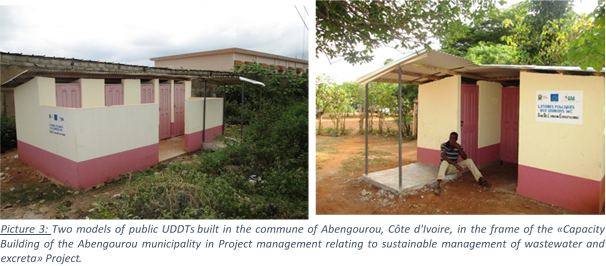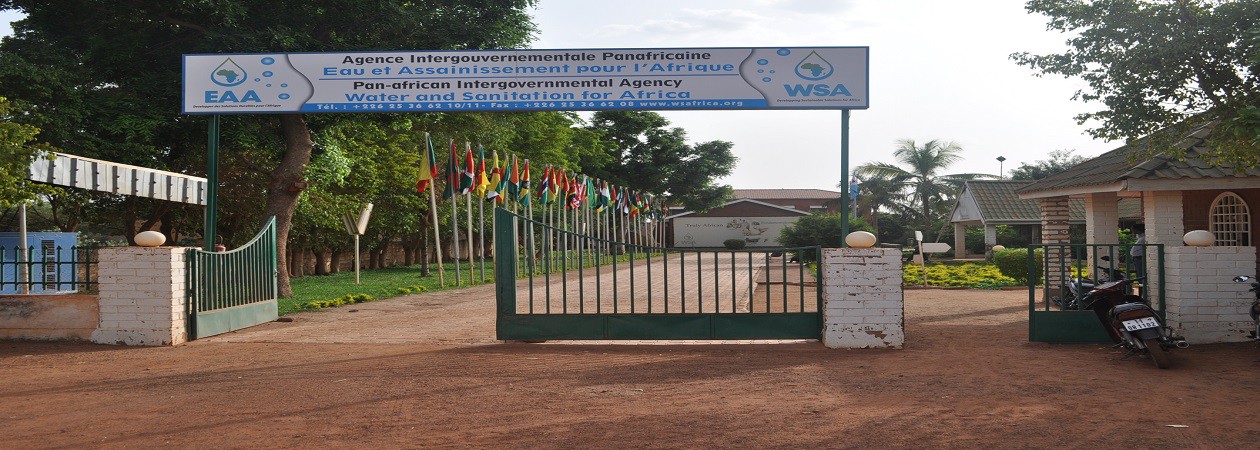Amongst the environmental problems facing most African cities, the non-control of wastewater and excreta stands high. For instance Abidjan capital of Côte d'Ivoire where neighbourhoods sanitary conditions reflect the urgent need to develop effective management mechanisms. Given its valuable experience in this field, WSA has pledged to support the town of Abengourou through a capacity building in the wastewater and excreta management.
In the frame of the «Capacity Building of the Abengourou municipality in Project management relating to sustainable management of wastewater and excreta» Project, WSA intends to strengthen the institutional, legal and organizational capacity of the Abengourou municipality for the provision of basic services relating to the management of wastewater and excreta in order to improve the living conditions of the people. This will involve an increase in the access to basic sanitation facilities and services of people in precarious neighborhoods. Overall, the project will consist of (1) helping reduce poverty and children under 5 mortality due to poor sanitation-related diseases, (2) creating jobs for youth and women, and (3) ensuring a healthy and sustainable environment.

Picture1: Unloading mud in the non saturated flow drying bed (LSENS) and urine separation
Ultimately, the project has set five goals to achieve and which shall be considered project implementation outcomes:
- The institutional, legal and organizational frame of the municipality; the consultation platform; the operating system and the endogenous funding mechanism; all relating to the operation and management of sanitation facilities are set and functional;
- The sanitation coverage rate of households in urban and peri-urban areas of Abengourou are increased by 33% ;
- Direct jobs for youth and women are created;
- Capacities (hygiene, collection, transportation, treatment and recovery of by-products) of the various sector actors and beneficiaries are reinforced;
- The socio-anthropological and economic feasibility is proven; the environmental and sanitary certification is established; and methodology guides and tools are published.
To achieve these results, a range of activities have already been undertaken; namely: the establishment of a fully operational Local Sanitary Committee (LSC), the construction of 150 over 200 planned UDDTs (Urine Diversion Dry Toilets) in 3 precarious neighborhoods; and the construction of two sites including one for urine storage/sanitization and the other for feces processing.

In addition, capacity building actions have been led such as the training of craftsmen-masons for the construction of public and family toilets; the training of sector actor-agents; awareness session targeting market gardeners in the use of organic fertilizers; and the training of fifty households in the proper use and maintenance of UDDTs. Also, Very Small Businesses (VSBs) in the collection, transportation, storage and reuse of sanitation by-products value chain have been developed.
According to the project mid-term evaluation, 75% of beneficiary households are satisfied with the construction of UDDTs while 88.2% know and practice UDDTs use and maintenance rules. The project also allowed the creation of jobs for the benefit of many young people, craftsmen masons, carpenters, plumbers, etc.
Funded by the European Union and implemented by WSA in collaboration with the city of Abengourou, this project is targeting vulnerable households, high schools, public areas (bus stations), peri-urban market gardeners, etc. It is expected to be completed in December 2015.
Photos illustrating the wastewater and excreta tranformation process

Picture 2: Unloading mud in the non saturated flow drying bed transformed into agricultural fertilizer

Picture 3: Unloading mud transformed into compost to fertilize an aubergine field. The yield is impressive as indicated by the pictures



